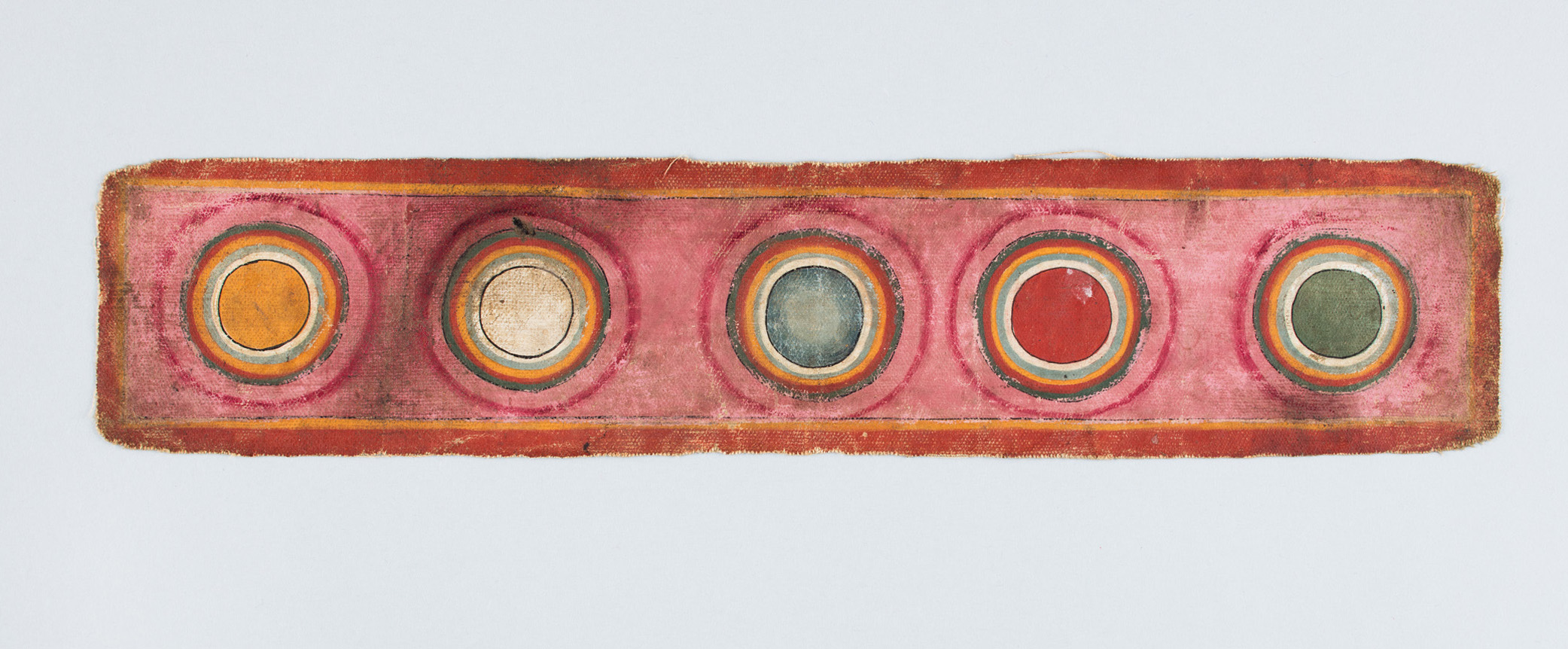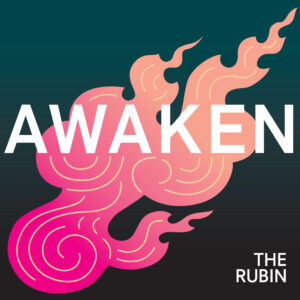
Dark Retreat Workshop
with Justin von Bujdoss
Saturday, August 10, 2024
2:00 PM–4:00 PM Sold Out
Using the absence of light over stretches of time is an advanced technique in Tibetan Dzogchen practice to help the practitioner shed the external distractions, recognize internal distractions, and ultimately come to clarity and balance.
In this introductory workshop, dharma teacher and chaplain for Hart Island Justin von Bujdoss contextualizes the practice, and aims to help workshop attendees anticipate what may or may not arise in a dark retreat setting. There will be a period of up to 40 minutes of complete darkness during the session. These experiences tend towards the visionary and have qualities that appear to mirror some of the experiences that are encountered with certain psychedelic substances.
This year the Rubin is becoming a global museum and closing the building on 17th Street on October 6, 2024. During this transformation, the Rubin is exploring how to release attachments and reframe perspectives. Join us as we examine Buddhist ideas of non-attachment in this workshop. We commonly think we need light to tell us what is. However in this practice of dark retreat meditation, the reverse might be true.
Prior to the workshop, Justin von Bujdoss will lead a 1:15 PM tour of the Lukhang Murals located on the second floor. The murals depict practitioners preparing to enter into dark retreats, a visual guide for participants to more fully understand this undertaking.
Watch highlights from a conversation on dark retreats
On April 14, 2023, Dr. Nida Chenagtsang joined Prof. Robert A.F. Thurman on the Rubin stage for an exploratory conversation about dark retreats. Learn about some of the psychological benefits of the practice in this video.
FAQs
- Is there any way to prepare for this workshop?
Try to show up to this workshop in such a way that you are relaxed and at ease. It may be worth trying to get a good night’s rest the night before—we are all generally busier than we think, and sometimes we don’t realize this until we are able to stop, and in this case, be in darkness for some time. An easeful, intentionally relaxed approach will definitely help you open up to the subtle nature of this type of experience. - What can I expect during the course of this workshop?
The workshop will begin with an introduction in which the practice of dark retreat will be contextualized. We will then move through a 40-minute curated simulation of what the dark retreat experience is like. There will be two blocks of time in which everyone will be seated together in darkness and then a series of images will be displayed. Since we are not always used to this type of experience, especially being in the dark, try to be curious about what comes up for you. - What mindset or perspective should I bring to this?
Try not to prejudge what you think the experience should be. Being in darkness can be challenging when we are anxious, in a difficult place with respect to our emotions, or are sick. Before committing to the workshop, take some time to think about whether or not being in a room with others in darkness would be a challenge for you. If it feels like something that will be worthwhile, then try to show up with an open, easy attitude and begin to explore your curiosity as the workshop begins. - Because we will be in complete darkness, if there is an emergency, how will we know what to do?
The Museum has carefully planned this workshop and will have Museum staff and fire marshals on site at the ready in the unlikely event that an emergency situation arises. In the event that a fellow participant may be experiencing distress or having difficulty, Museum staff will assist the individual out of the auditorium and organize the appropriate follow-up response.
Recommended reading prior to the workshop:
Naked Seeing: The Great Perfection, the Wheel of Time and Visionary Buddhism in Renaissance Tibet, by Christopher Hatchell.
The Dalai Lama’s Secret Temple: Tantric Wall Paintings from Tibet, by Ian Baker, Thomas Laird.
Dawning of Clear Light: A Western Approach to Tibetan Dark Retreat Meditation, by Martin Lowenthal.
About the Teacher
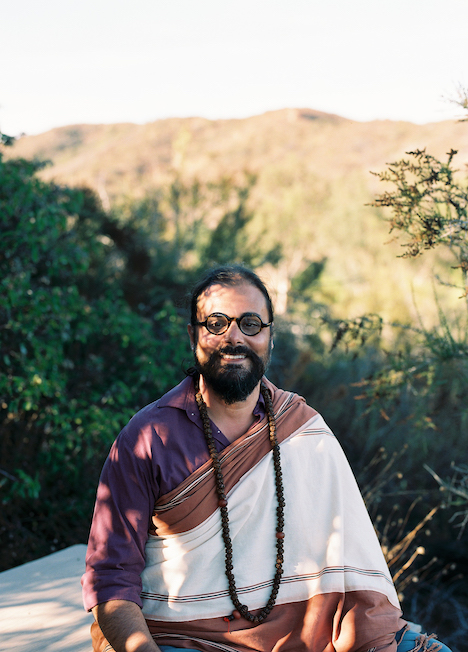
Justin von Bujdoss (Repa Dorje Odzer) is an American dharma teacher who was ordained as a repa (lay tantric yogin) in the Karma Kamstang tradition of Tibetan Buddhism by His Eminence Goshir Gyaltsab Rinpoche in 2011. Justin has worked as a full-time hospital and home hospice chaplain and is trained both in CPE (Clinical Pastoral Education) as well as Buddhist end-of-life practices and spiritual care. Justin has served as the first dedicated staff chaplain and executive director of the Division of Chaplaincy and Staff Wellness for the New York City Department of Correction and has worked extensively on Rikers Island. He is presently the chaplain for Hart Island, New York City’s public cemetery. Justin is working with Dr. Nida Chenagtsang on developing Yangti Yoga Retreat Center, a space dedicated to the practice of Ati Yoga (Dzogchen), Yangti Yoga (dark retreat), and related bardo practices. He is the author of Modern Tantric Buddhism: Embodiment and Authenticity in Dharma Practice, published by North Atlantic Books, 2019.
Lead support for the Rubin Museum is provided by the Milton and Sally Avery Arts Foundation, Bob and Lois Baylis, Barbara Bowman, E. Rhodes and Leona B. Carpenter Foundation, Noah P. Dorsky, Fred Eychaner, Christopher J. Fussner, Agnes Gund, The Robert H. N. Ho Family Foundation Global, the Estate of Lisina M. Hoch, Henry Luce Foundation, The Pierre and Tana Matisse Foundation, Mellon Foundation, Matt and Ann Nimetz, The Randleigh Foundation Trust, Shelley and Donald Rubin, Tiger Baron Foundation, and Ellen Bayard Weedon Foundation.
General operating support of the Rubin Museum of Art is provided by Daphne Hoch Cunningham and John Cunningham, Anne E. Delaney, Dalio Philanthropies, Janet Gardner, Dan Gimbel of NEPC, Inc., The Prospect Hill Foundation, Basha Rubin and Scott Grinsell, Namita and Arun Saraf, Linda Schejola, Eric and Alexandra Schoenberg, Eileen Caulfield Schwab, Jesse Smith and Annice Kenan, Tsherin Sherpa, Tong-Tong Zhu and Jianing Liu, with generous donations from the Museum’s Board of Trustees, individual donors and members, and corporate and foundation supporters.
This program is supported, in part, by public funds from the New York City Department of Cultural Affairs, in partnership with the City Council.
The Rubin Museum’s programs are made possible by the New York State Council on the Arts with the support of the Office of Governor Kathy Hochul and the New York State Legislature.


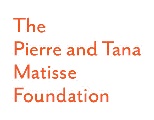


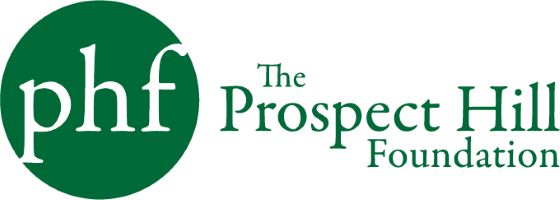


Image credit:
Five Cosmogenic Elements; Text and Illuminations of the Hundred Peaceful and Wrathful Deities of the Intermediate State (Bardo); Tibet; ca. 15th century; pigments on cloth; Rubin Museum of Art; gift of the Shelley & Donald Rubin Foundation; F1998.16.5.2, HAR 68878 (Part of HAR 778)
Ticket Price: $50
Member Tickets: $40
A ticket grants access to a pre-program tour and the galleries.
This program is now SOLD OUT.
If you would like to be added to the standby list, please review our standby procedures.

